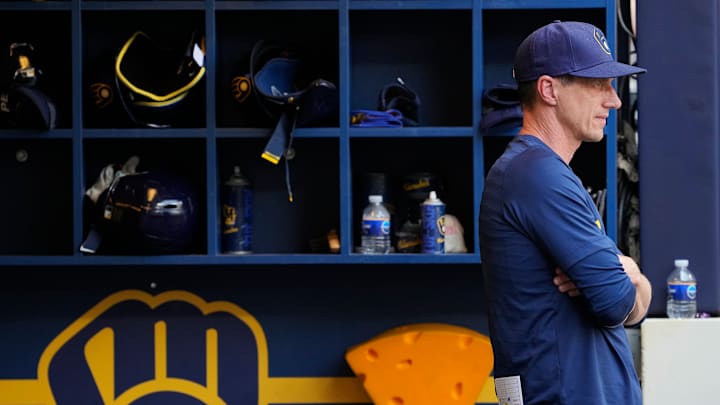The Milwaukee Brewers have once again positioned themselves as front runners in the NL Central. Despite facing tough injuries, the team has displayed resilience and is determined to secure a playoff spot. As the trade deadline approaches, it raises the question: Will the Brewers be "buyers," "sellers," or engage in a combination of both strategies?
Before delving into what the Brewers should do, it's crucial to understand the team's current situation. While the Brewers are strong in the NL Central, the inability for anyone to jump out to a big lead has made it an incredibly competitive division. Every team, except the Cardinals, is within striking distance of first place.
The Brewers have experienced a streaky season, contending with injuries and setbacks. However, their pitching remains their greatest strength, showcasing impressive performances. Furthermore, the imminent return of Brandon Woodruff from his near season long injury will bolster their pitching staff even further.
In the short term, the Brewers have a great chance to secure a playoff spot by the end of the season. Their success primarily relies on pitching and defense, while their offense has proven inconsistent. Notably, there are areas within the lineup that require attention, such as first base, third base, and designated hitter.
So, will the Milwaukee Brewers be buyers or sellers at the 2023 trade deadline?
To improve their offense, the Brewers should consider a lineup makeover. Acquiring impactful players for first base, third base, and designated hitter positions would address their weaknesses. By strengthening these areas, the team can achieve a stronger offensive unit.
When considering potential trade candidates for the Milwaukee Brewers, several names stand out as promising fits for the team's roster. Justin Turner of the Red Sox, Brent Rooker of the A's, and Dominic Smith of the Nationals all offer positional versatility, a quality highly valued by the Brewers.
Turner's experience at first base, third base, and second base makes him an intriguing option. With a solid season at the plate, Turner boasts a .285/.357/.461 slash line and has already smacked 13 home runs. Additionally, Turner is under contract through 2024 and is the only player with a somewhat notable financial commitment.
Alongside Turner, Rooker provides an affordable option, as he is currently under a cheap contract (under one million) and does not hit arbitration until 2025. Rooker brings adaptability in the outfield and as a designated hitter, showcasing a .241/.336/.466 slash line with 14 home runs. The power-hitting duo of Turner and Rooker may thrive even more in the hitter-friendly confines of American Family Field.
Moreover, Smith, who plays first base and left field, would be a rental as he is on a one-year deal worth $2MM. Although Smith's offensive numbers aren't as impressive as Turner and Rooker, with a .260/.326/.331 slash line and four home runs, he presents an upgrade over Rowdy Tellez, who is struggling at the plate. These players offer a combination of versatility and performance, providing attractive trade candidates for the Brewers to consider.
When looking at the long-term prospects of the Milwaukee Brewers, their dedication to a strategy known as "bites of the apple" becomes apparent, underscoring the significance of maintaining a consistent level of competitiveness over time. Right now, their farm system ranks somewhere in the middle compared to other teams.
In order to bolster their chances of sustained competitiveness, it is crucial for the Brewers to consider strategically part ways with certain players in exchange for promising prospects.
Considering the Brewers' current situation, goals, and some trade candidates, a balanced approach of buying and selling is my recommended strategy for this trade deadline. As much as some fans might hate to hear it, adhering to their "bites of the apple" strategy, the team should look to strengthen the roster while keeping the farm system strong.
Acquiring impactful players for positions of need, such as first base, third base, and designated hitter, can address the team's weaknesses in the short term. Simultaneously, the Brewers should explore trading valuable assets for prospects to enhance their long-term outlook. Striking this balance will position the Brewers for sustained competitiveness in both the short and long term.
